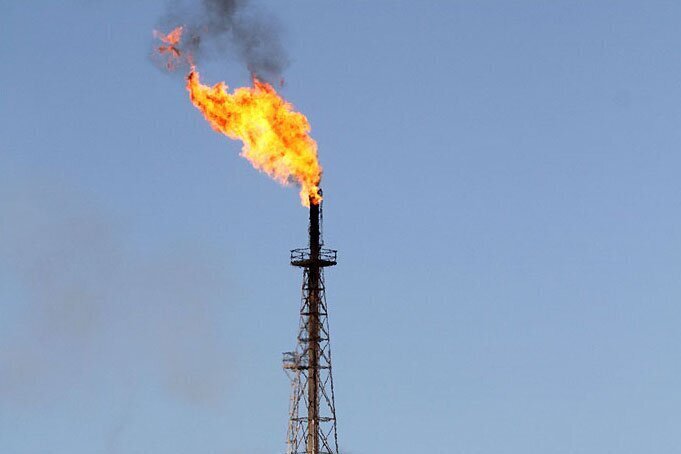Petchem sector invests $5b to curb gas flaring, aims to cut carbon emissions by half

TEHRAN – Iran’s petrochemical industry has invested $5.0 billion to reduce gas flaring in upstream oil operations and is drafting a strategic roadmap to further cut emissions, according to the health, safety and environment (HSE) director of the National Petrochemical Company (NPC).
Davoud Emadi told Shana that the petrochemical sector, which accounts for only eight to nine percent of total gas flaring in Iran’s oil industry, has launched 15 active projects to recover flare gases and continuously monitor carbon output.
The investment supports flare gas collection for feedstock supply, with major contributions from Bidboland Persian Gulf Gas Refinery, Hoveyzeh Persian Gulf Gas Refining Company, Dehloran Gas Refinery, and Maroon Petrochemical Company.
Emadi said 59 flares in the East Karoun region are being targeted for shutdown as part of a major recovery project led by Bidboland, with nine flares already extinguished. Preparations are also underway to enable petrochemical investment in flare gas recovery at South Pars Gas Complex in Assaluyeh.
He noted that much of the flaring in petrochemical units stems from operating below full capacity. Running at maximum output would significantly reduce flare volumes, he said.
Flare gases in the petrochemical sector typically consist of equal parts carbon dioxide, hydrogen, and other gases, differing in composition from upstream oil sector flaring. These gases are often unsuitable as feedstock, requiring specific technologies for consumption or recycling—if economically viable at all, Emadi explained.
The industry’s flare reduction strategy, still in development, aligns with its broader commitment to environmental standards. Fifteen active recovery and control projects are already in motion under the plan.
Emadi said Iran’s petrochemical industry has been implementing a carbon management strategy since 2020, with the roadmap officially issued to all firms and holding companies.
He said Persian Gulf Petrochemical Industries Company began implementing carbon reduction projects in 2024, while Parsian Oil and Gas Holding has also recently launched climate-related initiatives.
The carbon management roadmap outlines three tiers of action. The first includes low-cost, high-impact measures that could cut carbon emissions by more than 50 percent. The second group involves more expensive, time-intensive steps to achieve a 30 percent reduction, and the final group comprises large-scale, less economical projects with limited impact.
Emadi emphasized that once the East Karoun flare gas collection project is completed by Bidboland, the petrochemical industry will have largely fulfilled its carbon reduction commitments.
He added that NPC continues to monitor carbon emissions across all petrochemical units and expressed hope that the sector will maintain its leading role in sustainable practices. The carbon strategy rollout in 2020 has already had a significant national impact, Emadi said.
EF/MA
